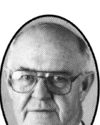Mr. Speaker, a request similar to this one was made at the beginning of the session by the member for Sherbrooke, on behalf of himself and his colleague, therefore on behalf of the entire caucus of the former Conservative Party. At the time, the Speaker refused to recognize the Conservative Party.
Therefore, this subject has been debated. At the time, I pointed out that the arguments raised by the Conservatives, and again today by the NDP, were raised three years ago by the Bloc Quebecois. The Speaker of the day had ruled that these arguments were not valid enough to formally recognize the Bloc. We have since come to agree with the Speaker's ruling. I have considered all the arguments put forward by my colleague and I believe that the rule of 12 continues to apply, except under certain circumstances.
Most of these circumstances arise when there is a minority government in the House. Such was the case in 1979, 1963 and 1957 when the parties agreed to recognize a party without 12 members. For reasons that are fairly obvious, the Clark government may have needed the support of the Ralliement créditiste. Moreover, we saw what happened when they later withdrew their support. Therefore, in some specific instances, primarily when there is a minority government, official status will be granted to a party that does not have the required number of sitting members.
It has also been argued that the same rules should not apply to parties who did not field candidates during the election, as was the case with the Bloc at the time. One of the examples given by my colleague was the Ralliement des créditistes, a party formed in 1963. Need members be reminded that this party did not exist at the time of the election? Then, the party was known as the Social Credit Party and it was headed by Mr. Thompson. A split developed within the ranks and Mr. Caouette founded the Ralliement des créditistes, a party which had not formally existed at the time of the election, a situation similar to that of the Bloc. Yet, the government of the day recognized the Ralliement des créditistes precisely because it was a minority government. The situation was quite different when the Bloc came into being. However, the Ralliement was no more a party at the time of the election than the Bloc was.
Therefore, the precedent exists for granting official status to a new party, although it was not considered when the Bloc requested such status. However, with respect to my colleague's question concerning the seating arrangement in the House, I will concede that the Bloc members were allowed to sit next to one another, pursuant to an agreement between all independent members. As I recall, we had reached an agreement with the Reform member and the two independents, Mr. Kindy and Mr. Knowlan. If there is agreement among the independents, I see no reason why the NDP members cannot sit next to each other. Provided, of course, there is agreement.
As regards identification, I think the hon. member is right. The Bloc's name appeared in Hansard and during the televised debates. I do not know if it is the case now for the NDP, but it was for us. I think this could be done for them. We did not get that recognition at the beginning. We raised the issue in various more or less pleasant ways and, it the end, we succeeded in having the name of our party appear on TV and in Hansard . I think we could apply that decision to grant the same privilege, with respect to the number of questions per week.
I am rather surprised to hear that Lucien Bouchard, the leader of the Bloc, was allowed to ask many questions. In fact, the figures show that, on average, he asked one and a half question per week. Whether that question had a major impact is a totally different issue which has nothing to do with the number of questions itself but, rather, with their quality. Again, the figures show that, on average, Mr. Bouchard asked 1.5 question per week, which is about what the NDP is allowed. I might add that those questions are always the last ones of the day, at about two minutes before three o'clock. In this regard, also, there is no change, compared to what the Bloc experienced.
These are the comments I wanted to make to help you make a decision.










